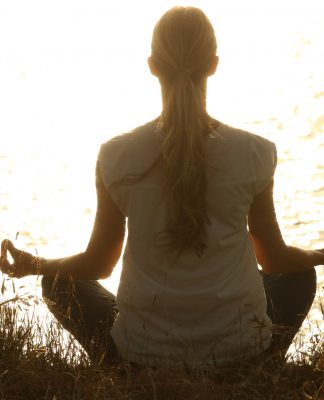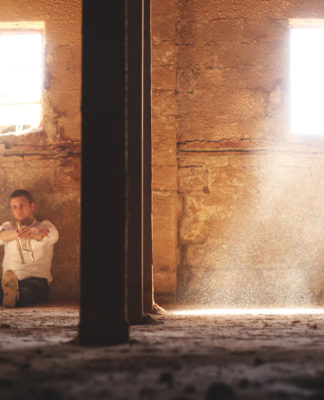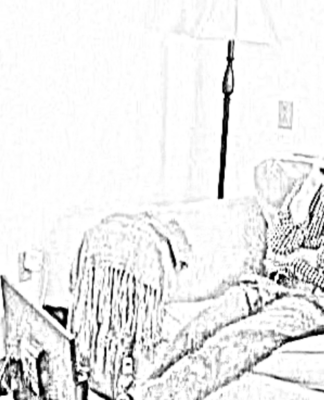Why can’t I sleep?
Trouble sleeping, or insomnia, happens to more than 3 million Americans yearly. Insomnia may be caused by biological factors, medical and psychiatric conditions, ineffective sleep habits and substance use, including alcohol use. Insomnia may be temporary or chronic and is estimated to cost the US over 63 billion dollars in lost wages annually, according to the American Academy of Sleep Medicine.
If you’ve ever experienced insomnia you know how maddening the experience can be. Recent research has shown that insomnia is usually part of a larger problem: the dysregulation of your sleep-wake cycle/circadian rhythm. In other words, you may need to pay attention to what you’re doing during your waking hours in order to sleep better at night. Understanding the cause of insomnia is important in finding a solution. So, what are some common and some uncommon causes of sleeplessness?
Medical causes of insomnia
-
Common medical causes of insomnia include thyroid imbalances, obstructive sleep apnea, acid reflux (heart burn), frequent middle of the night urination, allergies and asthma, arthritis and chronic pain.
-
Less common medical causes of insomnia include Parkinson’s disease, Huntington’s disease, dementia, delirium, and restless leg syndrome.
Psychiatric causes of insomnia
-
Mood disorders such as depression and bipolar disorder, anxiety disorders, psychotic disorders, narcolepsy and post traumatic stress disorder.
-
Any psychiatric disorder has the potential to cause insomnia, often related to symptoms of anxiety and sometimes as a side effect to medication used to treat your psychiatric condition.
-
Insomnia is incredibly common in anxiety disorders. Often times people experiencing an anxiety disorder report trouble falling asleep due to their mind “racing” or “spinning” with thoughts that are distressing and difficult to turn off, especially when trying to fall asleep.
-
Depression can also disturb your sleep/wake cycle and can cause a range of problems from excessive sleeping to insomnia, and everything in between. I often treat patients with depression who have trouble sleeping at night and then feel so exhausted during the day they nap for several hours. This leads to problems falling asleep later that evening and can quickly become a cycle that’s difficult to correct.
Substance use
-
Use of things like alcohol, tobacco, pain medications and medications used to treat things like ADHD, thyroid imbalances and obesity can cause insomnia.
-
Also, the use of prescription and over the counter sleep-inducing medications, as well as the use of marijuana for sleep can cause “rebound insomnia” once you stop using that substance.
-
All of these substances can disrupt your entire sleep/wake cycle which often leads to additional problems including fatigue or anxiety during the day and trouble sleeping at night.
Ineffective Sleep Habits
-
Many of our nighttime habits can contribute to or cause insomnia from time to time. Looking at a screen, on a phone, tablet, television or computer within two hours of trying to fall asleep can disturb your production of hormones that are critical to our circadian rhythm maintenance, resulting in significant problems with sleep. https://sleepfoundation.org/ask-the-expert/electronics-the-bedroom
-
Likewise, drinking alcohol before bedtime causes significant changes to your circadian rhythm and, while a nightcap may indeed help you fall asleep quicker, you are unlikely to experience quality sleep once your out. Even one serving of alcohol can cause you to wake up much sooner than you should and cause difficulty falling back to sleep. Even if you do manage to sleep enough hours, alcohol negatively effects the amount of R.E.M. sleep you get, which is bad for your energy levels the next day. R.E.M. Sleep is the most restorative phase of sleep, the stage in which we dream, and not spending an adequate time in R.E.M. sleep leaves you feeling “groggy and foggy” the next day.
-
Other common bad sleep habits include sleeping in a room that is too hot or too cold or a room that isn’t dark enough.
-
Caffeine and tobacco, both stimulants, can cause insomnia. Cutting out caffeine and tobacco use often cures insomnia completely.
-
Investing in a quality mattress, comfy and clean sheets, a pillow that provides good head and neck support and a variety of sheets/blankets that allow you to control your body temperature throughout the night are important.
-
Room darkening shades can help your circadian rhythm function optimally and are a worthwhile investment for anyone suffering with sleeplessness.
-
A sound machine or fan cause also help decrease noise pollution that may be waking you from sleep prematurely.
If you are suffering from insomnia, talk to your healthcare provider about your concerns. She or he can help you uncover any underlying causes and begin working towards a solution. Changing sleep habits, adjusting medications, eliminating substances and behaviors that are contributing to insomnia and utilizing pharmacological and non pharmacological treatments can help you get back to sleeping like a baby.



















